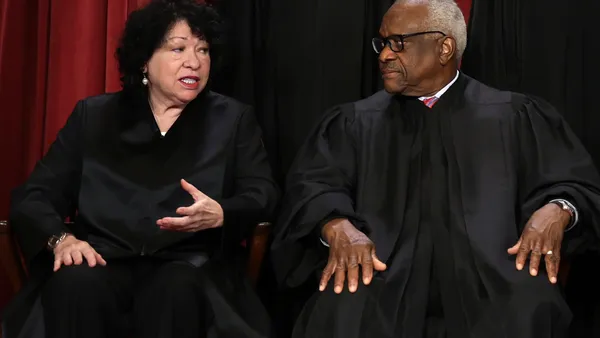Dive Brief:
- The U.S. Equal Employment Opportunity Commission (EEOC) yesterday released its controversial, now revised, proposal to collect pay data through the Employer Information Report (EEO-1), a longstanding joint information collection of EEOC and the U.S. Department of Labor's Office of Federal Contract Compliance Programs (OFCCP).
- According to the EEOC, the proposed revision would include collecting summary pay data from employers, including federal contractors, with 100 or more employees. It says the pay data "will assist the agencies in identifying possible pay discrimination and assist employers in promoting equal pay in their workplaces."
- The original proposal garnered more than 300 comments during an initial public comment period earlier this year, and because of that feedback, the EEOC is proposing to push back the due date for the first EEO-1 report with pay data from September 30, 2017 to March 31, 2018.
Dive Insight:
The EEOC said the revised proposal may be reviewed on the Federal Register website as of today. Then, members of the public will have one month (until Aug. 15) to submit written comments to the U.S. Office of Management and Budget (OMB), which approves federal information collections.
In a statement, EEOC mentioned it "adopted specific suggestions made by commenters," but only mentioned the delay in the deadline as a way to "simplify" employer reporting by allowing employers to use existing W-2 pay reports, which are calculated based on the calendar year.
EEOC Chair Jenny R. Yang in the statement said that "collecting pay data is a significant step forward in addressing discriminatory pay practices. This information will assist employers in evaluating their pay practices to prevent pay discrimination and strengthen enforcement of our federal anti-discrimination laws."
Many on the employer side were unhappy with the original proposal, and that remains the case with the revised version. Kristina Launey, a partner Seyfarth Shaw’s Chicago office, said “The EEOC has an agenda and it’s sticking to it regardless of good sense input from the business community."
Annette Tyman, who practices in the firm's Pay Equity Group, added that the EEOC "virtually rejected all of the concerns from the employer community.”
More to come after Aug. 15.












